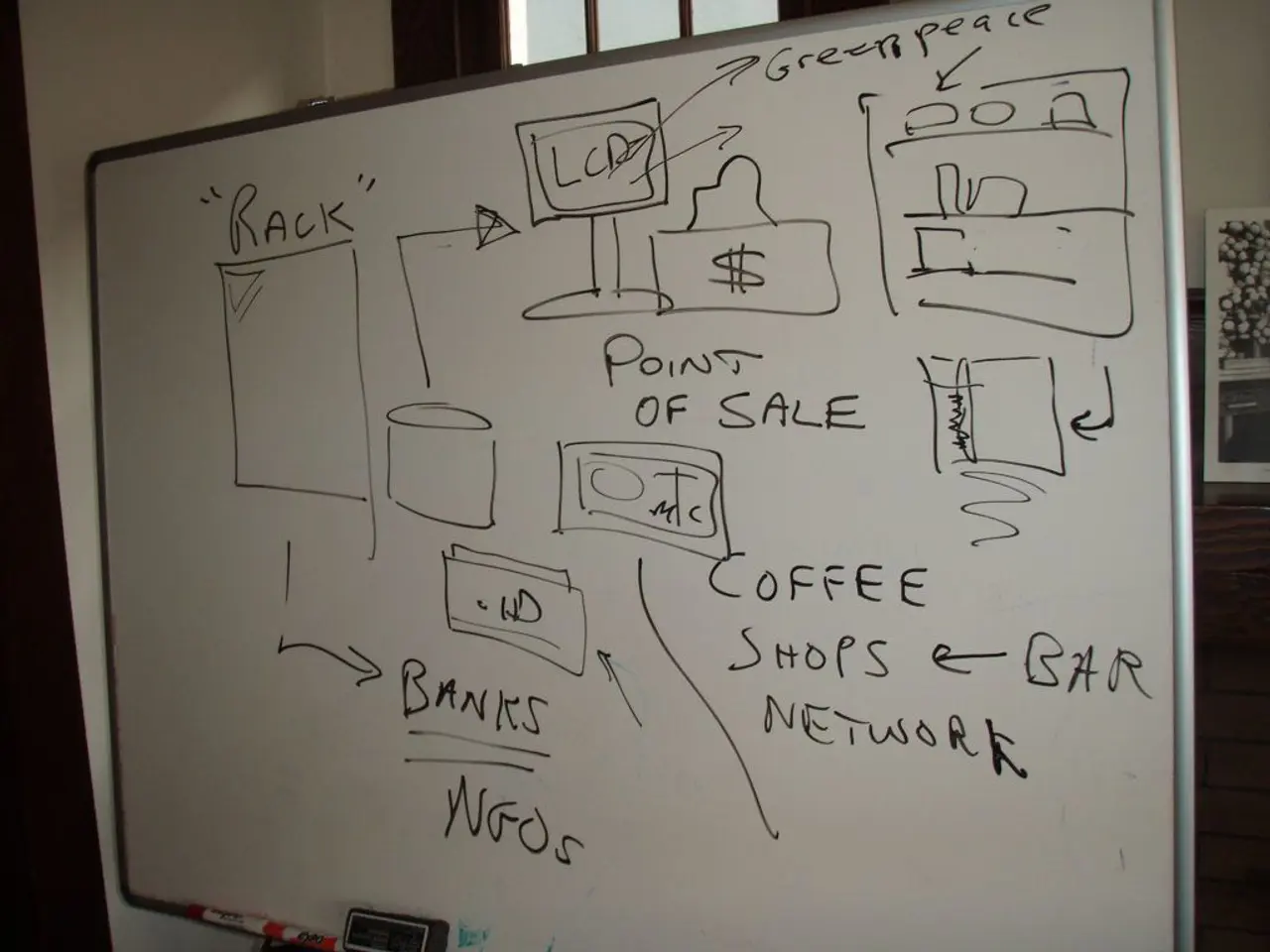Debunking the Argument Against FiDA: A Misguided Perspective
The Financial Data Access (FiDA) regulation, aimed at enabling secure sharing of financial data, is making significant strides in the EU legislative process. As part of the broader discussions on PSD3 (Third Payment Services Directive) and PSR (Payment Services Regulation), trilogue negotiations between the European Commission, Parliament, and Council are currently underway [1][2][4].
Nicola Breyer, an Open Finance expert, advisor, and investor in FinTechs, has been actively involved in these discussions. Since 2025, Breyer has been writing the Open Finance column "Nicola Makes Data Clear" about Payment & Banking [3]. Before this, Breyer was the CEO and Managing Director at the Open Finance company Qwist, and held leadership roles at various financial companies, including OptioPay and PayPal [5].
The financial sector is the first of many that the EU wants to regulate with a regulation as part of its open data strategy, setting a precedent for FiDA [6]. This move is not without controversy, as some parts of the banking and insurance industry view the proposed data scope, costs, and monetization model as problematic [7].
Key points of discussion relevant to FiDA and financial data access include:
- Scope of Financial Data and Open Banking Provisions: Stakeholders such as the European Third Party Providers Association (ETPPA) emphasize the need to revisit and strengthen open banking-related provisions. They advocate for reverting to the Commission's original wording on definitions and contingency measures to ensure broader business model support and fraud mitigation [2].
- Monetization and Licensing: While direct details on monetization strategies for financial data within FiDA are limited, the discussions on PSD3/PSR imply a focus on regulatory harmonization to enable non-bank market entrants, suggesting that licensing could be standardized to foster competition [1][2].
- Handling of BigTech Companies: The negotiations might address how large tech companies access and monetize financial data, possibly through provisions that ensure fair competition and regulatory oversight [1].
- Consumer Protection and Fraud Prevention: Proposals include enhancing consumer protection by reducing payment fraud through improved quality and availability of APIs for open banking and ensuring robust contingency measures during interface downtimes [1][2].
- Licensing for Market Participation: ETPPA and other stakeholders urge maintaining or reinstating Commission and Parliament texts that prevent narrowing the definition of payment services, thereby supporting diverse licensing and market participation models [2].
In summary, the trilogue negotiations on FiDA, within the scope of PSD3 and PSR, aim to create a more harmonized and competitive EU financial data environment with strong protections for consumers and provisions enabling innovation [1][2][4]. The trilogues are expected to conclude by December 2025, after which the final agreed texts will be adopted by both Parliament and Council [1][4]. Market participants should monitor these developments closely to adapt to future regulatory frameworks.
However, there is concern that FiDA could open the EU financial market to large US tech companies [7]. As the negotiations progress, it will be interesting to see how these concerns are addressed and how the final regulation will shape the EU's financial data landscape.
The trilogue negotiations on FiDA, within the scope of PSD3 and PSR, are considering licensing strategies to foster competition among non-bank market entrants, potentially including standardized licensing for large tech companies like those from the US, setting a precedent for innovation in the financial sector [1][2][4][7]. To ensure a more harmonized and competitive EU financial data environment, the discussions also focus on enhancing consumer protection, fraud prevention, and open banking provisions [1][2][4]. Market participants are advised to follow these developments closely to adapt to future regulatory frameworks.




